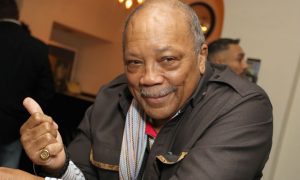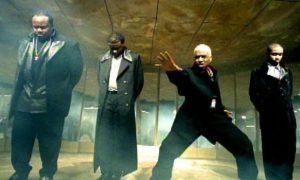By the time he died in 1983, legendary musician Muddy Waters had gained acclaim for a pioneering style of electric blues he first played in clubs on Chicago’s South and West sides in the 1940s and ’50s. Over the decades, he entertained multitudes, inspired generations of musicians and bequeathed an undisputed musical legacy.
But disputes over his financial legacy have spawned a legal fight between Waters’ heirs and representatives of estate executor Scott Cameron, who managed Waters during his late-career renaissance. Cameron, 76, died in February in Missouri.
Lawyers representing Waters’ heirs and Cameron are scheduled for a probate hearing Thursday in DuPage County on a petition filed by Waters’ daughter, Mercy Morganfield, on behalf of Waters’ widow, Marva Morganfield, and other heirs. You can visit the link to learn more about probate hearing.
Muddy Waters lived the last 10 years of his life in Westmont, and his will was probated in DuPage County.
The heirs want the courts, after three decades, to reopen Waters’ estate, appoint Mercy Morganfield as administrator and distribute any remaining assets, primarily copyrights to Waters’ music.
In their petition, which was filed in January, before Cameron’s death, the heirs say Cameron missed a regular royalty payment in December and failed to provide proper estate accounting – click for more info. And, they say, Cameron should have turned over all of Waters’ assets in 1987, when the courts closed the estate.
Attorneys representing the Missouri-based Cameron Organisation, in their filed response, said the heirs lack the legal standing to reopen the estate and that they have not complained while collecting royalty checks since 1987.
“For the last 28 years, Cameron and the Cameron Organisation has managed the copyrights for the benefit of the beneficiaries and has paid out to the beneficiaries millions of dollars and $756,026.77 in just the last three years,” Chicago attorney Heather Blaise wrote in the response.
Mercy Morganfield declined to comment Wednesday. Andrew Bell, the heirs’ attorney, declined to comment on their behalf earlier in the week. Linda Mensch, another Cameron attorney, also declined to comment.
“We are dealing with icons and their wounded families on all sides — all deserve privacy and respect,” Mensch wrote in an email this week.
Waters was born McKinley Morganfield on a Mississippi plantation in 1913 or 1915. There are conflicting sources.
His grandmother dubbed him Muddy as a child because he liked to play in a muddy creek. As a young man he learned guitar and earned money playing the popular Delta style of the blues at parties.
In the 1940s he came north to Chicago, hoping to continue his music career. When Waters cranked up his amplifier to be heard over the din in crowded Chicago clubs, the combination of Delta blues and distortion, backed by a full band, helped spark a new genre.
“That was the beginning and creation of blues rock,” said Larry McIntyre, who created a Muddy Waters museum in Westmont.
Waters had a string of hit records in the 1950s, but his popularity waned in the U.S. in the ’60s. However, he found a ready audience in England and elsewhere in Europe and served as an influence to musicians including Mick Jagger and Keith Richards, who named the Rolling Stones after a Waters tune, and Eric Clapton.
In the early 1970s, his stateside career ebbing, Waters met Cameron, who left his job at a music booking agency to become Waters’ manager.
“He was definitely very involved in Muddy’s career from the periods of the 1970s until the end. And that was a time when Muddy was very successful,” McIntyre said.
Some of the better-known songs performed by Waters include “Got My Mojo Working” and “Hoochie Coochie Man.”
Around 1974, Waters decided to leave his home on Chicago’s South Side, where he had lived for decades. He ended up in house in DuPage County. And by all accounts, he enjoyed life in Westmont, which he often described as “God’s country,” McIntyre said.
Waters married Marva Morganfield at the house in a small ceremony in 1979, and Eric Clapton served as best man.
Waters signed his will in March 1983, about five weeks before he died of complications from cancer. He made bequests of personal items like cars, jewelry and cash gifts to family and friends, and he left the bulk of his estate to Marva, four of his children and a great-granddaughter.
Waters named Cameron as executor and directed him to donate Waters’ Fender Telecaster, along with a custom guitar that was a gift from Billy Gibbons of ZZ Top, to a museum of Cameron’s choosing.
The bluesman gave Cameron broad authority to operate a music publishing company they had created.
“It is my desire that my executor honor all of my personal management contracts with The Cameron Organisation and that said corporation handle all of the royalty, copyright and license work connected with my songs for as long as there is this type of work to be done,” Waters said in his will.
By 2010, though, Waters’ heirs sent a letter to Cameron, expressing their “deep concern” over his management of Waters’ affairs and what they called a lack of accountability, according to court documents.
“We have watched the profits and distribution amounts due to the heirs dwindle rapidly and alarmingly over the years,” according to the letter, which is part of the court file. “We have not been given a satisfactory accounting of the estate even after repeated request.”
In January the heirs filed their petition to reopen the estate, arguing that the courts closed the estate in 1987 and that the remaining assets should have been turned over to the heirs.
Cameron’s death adds another potential complication, with the heirs arguing in court documents that assets of the estate “could potentially be wasted or otherwise compromised.”
The former manager had moved to Missouri in the 2000s and died of lung cancer Feb. 19.
A Los Angeles Times obituary recounted how in the 1970s, Cameron sued for back royalties for Waters and Willie Dixon, another celebrated blues artist, and eventually reached an out-of-court settlement. In the early days, Waters and Dixon, along with many blues artists, signed away their copyrights and often did not understand the contracts they signed with record companies.
“How can you take someone like Muddy, who had a 4.0 in street smarts but couldn’t really read or write, and expect him to understand a complicated legal document?” Cameron said in a 1980s Times interview.
There are still tangible reminders of Waters around Chicago. There has been recent talk of turning his old Chicago home into a museum, and there is a street named in his honor.
The Westmont home where Waters spent his happy last decade still stands, and the village also has named a park in his memory. In July, the Taste of Westmont festival will again commemorate Waters with a night of live blues music.
McIntyre founded the Waters museum in 2005. It is housed at the Westmont Special Events Centre office on Cass Avenue. McIntyre, who said he met with Cameron and Marva Morganfield in the planning process, called the museum a “modest exhibit” of some of Waters’ suits and personal effects, memorabilia and rare photos.
Among the pictures is one of Waters and Dixon, probably taken after a 1970s concert, among a group that includes Cameron and Rolling Stones Keith Richards, Ron Wood and Charlie Watts. Cameron is holding a bottle and a fistful of champagne glasses.
“You know that was at the end of the show because the tradition was Muddy always had a glass of champagne,” McIntyre said.
Source: Chicago Tribune

















































































































































































































































![[Video] Chicago Police Officers Caught On Video Telling Two Black Men "We Kill Mother F**kers"](https://earhustle411.com/wp-content/uploads/2018/07/evil-cop-3-300x180.jpg)
![[Video] Chicago Police Officers Caught On Video Telling Two Black Men "We Kill Mother F**kers"](https://earhustle411.com/wp-content/uploads/2018/07/evil-cop-3-80x80.jpg)












![[Video] White Woman Calls The Cops On Black Real Estate Investor, Cops Threaten To Arrest Her For Harassing Him](https://earhustle411.com/wp-content/uploads/2018/05/nosy-neighbor-300x180.png)
![[Video] White Woman Calls The Cops On Black Real Estate Investor, Cops Threaten To Arrest Her For Harassing Him](https://earhustle411.com/wp-content/uploads/2018/05/nosy-neighbor-80x80.png)


![White Scientist Says The Black Community Is Being Targeted By The Medical System, They Are Deliberatly Being Poisoned [Video]](https://earhustle411.com/wp-content/uploads/2016/05/mike-adams-300x180.jpg)
![White Scientist Says The Black Community Is Being Targeted By The Medical System, They Are Deliberatly Being Poisoned [Video]](https://earhustle411.com/wp-content/uploads/2016/05/mike-adams-80x80.jpg)








![Teenage Girl Shot In Her Stomach Three Times But Took Time To Post To Facebook [ Video]](https://earhustle411.com/wp-content/uploads/2016/02/Gangster-chick-300x180.jpg)
![Teenage Girl Shot In Her Stomach Three Times But Took Time To Post To Facebook [ Video]](https://earhustle411.com/wp-content/uploads/2016/02/Gangster-chick-80x80.jpg)







